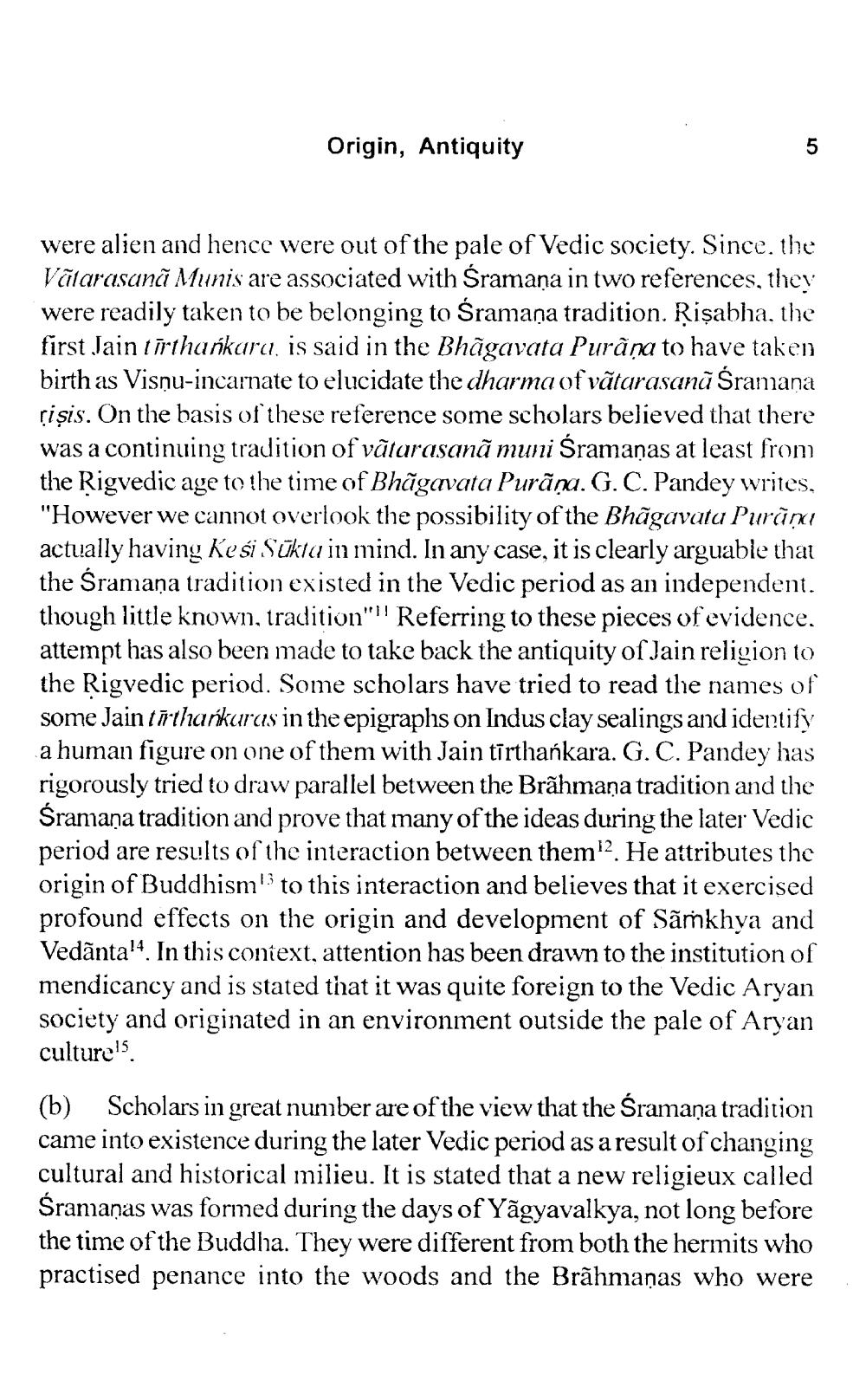________________
Origin, Antiquity
5
were alien and hence were out of the pale of Vedic society. Since. the Võtarasană Munis are associated with Śramana in two references, they were readily taken to be belonging to Śramaṇa tradition. Risabha, the first Jain tīrthankara, is said in the Bhāgavata Purāņa to have taken birth as Visņu-incarnate to elucidate the dharma of vatarasanā Śramaṇa risis. On the basis of these reference some scholars believed that there was a continuing tradition of vãtarasanã muni Śramaṇas at least from the Rigvedic age to the time of Bhāgavata Purāņa. G. C. Pandey writes, "However we cannot overlook the possibility of the Bhagavata Purāņa actually having Kesi Sūkta in mind. In any case, it is clearly arguable that the Śramana tradition existed in the Vedic period as an independent. though little known, tradition" Referring to these pieces of evidence. attempt has also been made to take back the antiquity of Jain religion to the Rigvedic period. Some scholars have tried to read the names of some Jain tirthankaras in the epigraphs on Indus clay sealings and identify a human figure on one of them with Jain tirthankara. G. C. Pandey has rigorously tried to draw parallel between the Brahmaṇa tradition and the Śramaṇa tradition and prove that many of the ideas during the later Vedic period are results of the interaction between them12. He attributes the origin of Buddhism' to this interaction and believes that it exercised profound effects on the origin and development of Sãṁkhya and Vedanta11. In this context, attention has been drawn to the institution of mendicancy and is stated that it was quite foreign to the Vedic Aryan society and originated in an environment outside the pale of Aryan culturels.
(b)
Scholars in great number are of the view that the Śramaṇa tradition came into existence during the later Vedic period as a result of changing cultural and historical milieu. It is stated that a new religieux called Śramanas was formed during the days of Yagyavalkya, not long before the time of the Buddha. They were different from both the hermits who practised penance into the woods and the Brahmaṇas who were




